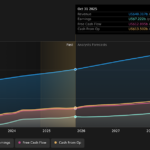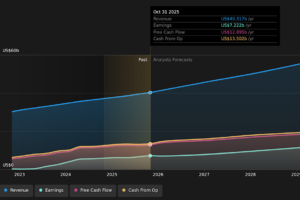People of color have faced hurdles in joining the burgeoning legal cannabis industry, despite bearing the brunt of marijuana arrests from the United States’ war on drugs. But many lawmakers and entrepreneurs are now making social justice a pillar — even a necessity — of how they approach the growing field.
Cities and states have implemented so-called cannabis equity programs, with mixed results, to address the harm inflicted on black and brown communities. Meanwhile, many industry figures have made equity and diversity cornerstones of their businesses.
C.J. Wallace, the 22-year-old son of the late East Coast rap legend Notorious B.I.G., launched the cannabis company Think BIG in March alongside his business partner Willie Mack and stepfather Todd Russaw. The trio have sought to shed fear and stigma around the plant, they say, pushing consumers to embrace its potential for creativity, healing and criminal-justice reform.
‘We have to figure out ways to fight for justice; to figure out ways to advocate for reinvestment in communities.’
“We have to figure out ways to fight for justice; to figure out ways to advocate for reinvestment in communities,” Mack, 42, told MarketWatch. “We believe that this industry cannot move forward in a way that’s going to be equitable … unless we address these cultural issues.”
The Los Angeles-based venture is also an homage to Wallace’s Grammy-nominee father, who died in a 1997 drive-by shooting when Wallace was an infant. He believes his father, who he says smoked marijuana to unleash creativity, would “100%” support his move to enter the industry, despite the Brooklyn native’s own drug-related legal woes.
“I feel like he would be so proud — and I feel like if he were alive, he’d be one of the trailblazers from the start, among Willie Nelson and Snoop [Dogg],” Wallace said. “I don’t think he would be fearful today of my decision.”
Wallace, who starred as his young father in the 2009 biopic “Notorious,” joins an array of celebrities of color who have launched cannabis-related businesses, including rapper and entrepreneur Snoop Dogg and EGOT winner Whoopi Goldberg. The California-based cannabis company Caliva announced recently that Jay-Z would serve as its chief brand strategist, with his focus on boosting formerly incarcerated individuals’ economic participation.
Under one in five cannabis businesses nationwide are minority-owned, according to a recent Marijuana Business Daily report.
But under one in five cannabis businesses nationwide are minority-owned, according to a recent Marijuana Business Daily report. An August 2017 survey of 567 self-identified senior executives, owners and founders polled by the same site found that about 17% of cannabis executives were minorities. Meanwhile, a 2016 BuzzFeed analysis estimated that just 1% of 3,200 to 3,600 U.S. storefront marijuana dispensaries had black owners.
This low participation is due in part to a lack of access to capital, advocates and entrepreneurs say. Lingering unease around the federal Schedule 1 drug poses another obstacle, advocates and entrepreneurs say: Black people are nearly four times as likely as white people to be charged with marijuana possession, despite similar usage rates, according to the American Civil Liberties Union.
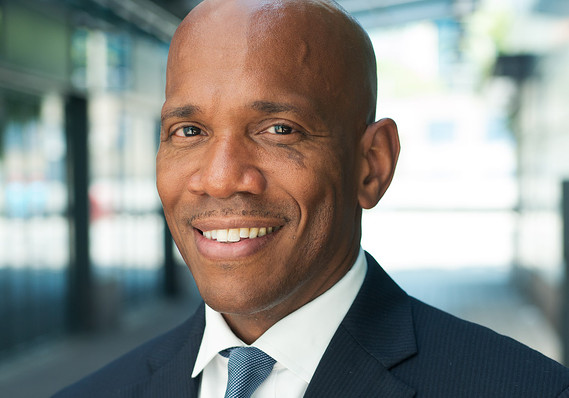 Courtesy of Steve Hawkins
Courtesy of Steve Hawkins
How marijuana equity programs have tackled the social-justice issue
State and local marijuana equity programs have aimed to benefit people from disadvantaged communities and those who come from “areas of disproportionate impact.”
Equity provisions tend to fall into a few distinct buckets, said Steve Hawkins, the executive director of the Marijuana Policy Project: an entrepreneurship component that addresses licensing for growing, processing and dispensaries; job-creation opportunities in the industry; revenue being directed to communities harmed by the war on drugs; and expungement of prior drug offenses.
These programs have achieved varying degrees of success, as the Associated Press points out. California cities like Oakland, San Francisco and Los Angeles have local equity ordinances, for example, and the state has allocated $10 million in grant money for local equity programs. But some people have lamented the slow pace of such programs.
In Massachusetts, whose program seeks to “actively engage people from communities of disproportionate impact and ensure their inclusion in the legal cannabis industry,” few minority candidates have reportedly applied for licenses, and just around 2% of cannabis businesses in the state are minority-owned.
And in Portland, which enacted a 3% recreational cannabis sales tax ostensibly meant to benefit those negatively impacted during marijuana prohibition, an audit released in May found that much of that tax revenue had gone toward transportation and police programs.
Illinois, which in June became the latest state to legalize recreational marijuana, included social-justice provisions in its legislation from the jump, including expungement of marijuana offenses; a social-equity program to benefit people impacted by the war on drugs; a $30 million business-development fund for uses like outreach, job training and low-interest loans and grants; and a “Recovery, Reinvest, Renew” program to benefit community groups in places disproportionately affected by disparities in cannabis-related law enforcement, poverty and violence.
The Marijuana Policy Project has called these efforts “the biggest step forward in social and criminal-justice reform anywhere in the country, inside or outside the issue of cannabis reform.” “The promise is hopefully in the Illinois model,” Hawkins said. “It may not be the model for the country, but it certainly could be a model.”
Drafters of the Illinois law learned from other states’ efforts, incorporating comprehensive social-justice provisions at a state level and baking them in from the outset, said Edie Moore, the executive director Chicago NORML, a chapter of the National Organization for the Reform of Marijuana Laws. “We asked for a few other things, but shoot, coming from zero to here?” Moore, 52, told MarketWatch. “We’re pretty happy.”
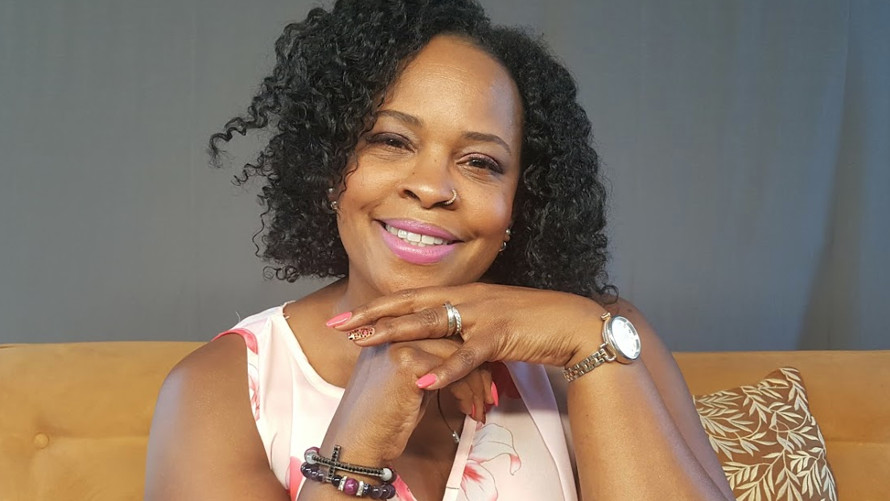 Courtesy of Edie Moore
Courtesy of Edie Moore
Some argue legalization will ‘exacerbate drug-related problems’ in their communities
Not everyone agrees that legalizing marijuana would benefit marginalized communities. Ahead of Illinois’ law passing, for example, state NAACP chapter president Teresa Haley called its potential legalization “a form of modern-day slavery” and argued that it would hurt the community.
“If lawmakers in Springfield pass marijuana legalization, it won’t benefit minority-owned businesses or communities who have been disproportionally harmed by the war on drugs,” Omari Prince, the Illinois state director for Smart Approaches to Marijuana, a national anti-legalization group, wrote in a Chicago Sun-Times letter to the editor.
“Instead, weed will exacerbate drug-related problems in those communities, while wealthy investors and big businesses will make massive profits of Illinoisans and off a harmful, addictive drug.”
There is evidence that cannabis and/or cannabinoids can help with conditions like pain, chemotherapy-related nausea and multiple sclerosis-related muscle spasms, according to a 2017 research review by the National Academies of Science, Engineering and Medicine.
But some research has also raised concern about marijuana’s potential health risks, including its impact on adolescent cognitive development. One 2017 study in the journal Drug and Alcohol Dependence found that while low doses of THC helped reduce stress, higher doses increased “negative mood.”
Marginalized people face barriers to entry
Early legalized-marijuana laws that barred would-be entrepreneurs from participating in the industry due to prior drug convictions have posed another roadblock, advocates say.
Moore called these initial laws “ludicrous,” but said states approaching the issue more recently seem to have recognized that. “The cannabis industry was really built on the backs of people from marginalized communities,” she said. “To turn around and have [other] people making millions of dollars off of it is just not equitable.”
The issue hits home for Shanita Penny, the president of the Minority Cannabis Business Association and an advocate for automatic expungement of prior cannabis offenses. States like Oregon, California and Massachusetts have passed cannabis-related expungement laws. Washington Gov. Jay Inslee, a current 2020 Democratic presidential candidate, announced in January he would pardon misdemeanor marijuana convictions.
 Courtesy of Shanita Penny
Courtesy of Shanita Penny
Penny, 37, who had her own 2011 marijuana possession charge expunged, says she recognizes that many others in the same boat don’t have the resources she had to spend on lawyers or the same ability to take time off work. That possession charge, she contends, “could’ve been the reason why I’m not in the space.”
“When we are legalizing in a state and we’re determining what are the minimum requirements for someone to get into the industry, prohibiting someone who has had a cannabis possession charge is a big deal for me,” Penny told MarketWatch. Had she not been able to expunge her record, she said, she wouldn’t be an owner in one of the two cannabis businesses in which she’s involved.
Despite the increasing number of states legalizing recreational and medical marijuana, there also appears to be residual fear and stigma around entering the industry, advocates say.
‘With the history of how the feds have targeted people of color in this instance, what are my chances of being the one raided?’
“There is a little bit of skittishness out there,” Hawkins said. “It’s the notion of, ‘OK, I can do this, but if the feds decide to utilize their discretion and go after businesses in this state, with the history of how the feds have targeted people of color in this instance, what are my chances of being the one raided?’”
Women in the industry — particularly women of color — have fears of their own, including being targeted by law enforcement, having their kids taken away, and being ostracized by their communities, according to Gia Morón, the president of the cannabis industry group Women Grow. Those threats can be both real and perceived, she said.
Working in the cannabis industry still carries a stigma, Morón said. There’s some “apprehension” from these working moms, she added, about whether their families will be affected by their decision to enter what is a legal industry in dozens of states.
But the most pressing issue facing minority entrepreneurs, Hawkins said, is obtaining the capital necessary to run a cannabis business. Startup costs for recreational plant-touching businesses (e.g., those that cultivate or distribute) in the cannabis industry can range from about $312,000 for a standalone retailer to $2.5 million for a vertically integrated retailer, according to Marijuana Business Daily, and medical plant-touching businesses can be even costlier to launch.
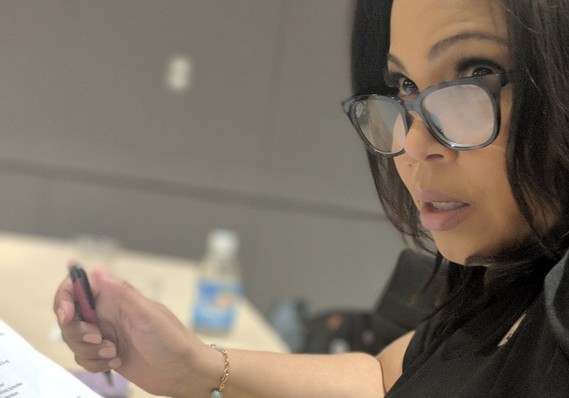 Courtesy of Gia Morón
Courtesy of Gia Morón
In general, minority-owned firms in the U.S. are less likely than non-minority firms to receive loans, according to the Commerce Department’s Minority Business Development Agency. They are also far more likely to be denied loans, and they receive lesser loan amounts than their non-minority counterparts. Penny points to the racial wealth gap, as well: The mean and median net worth of black families in 2016 was less than 15% that of white families, according to the Federal Reserve Board.
Equity provisions may help make licensing more possible, Hawkins said — but if people don’t have the capital to actually operationalize, they may win a license and later discover they lack sufficient resources to get their business up and running.
Women in cannabis, especially minority women, tend to fare worse on funding than their male counterparts, added Morón. “We’re seeing that women of color are receiving even less financial support in terms of access to capital and opportunities and even leveraging relationships,” she said. “I don’t think cannabis is any different than any other industry.”
Many women have also told Morón they’re searching for mentors in the relatively new industry, she said. “There aren’t enough mentors to go around and address everyone’s needs,” she said. “We’re oftentimes looking for someone who can relate to our experience.”
An obstacle for pretty much anyone trying to enter the cannabis industry, added Moore, is “just knowing what the hell you’re talking about.” Many aspiring cannabis entrepreneurs lack a deep knowledge of the industry’s culture and history, she said, not to mention of the plant itself.
Why social justice in legal marijuana has taken so long
The earliest regulated states with marijuana licensing programs were cautious “by design,” requiring extensive criminal-background checks, extensive financial background checks, and, in most cases, proof of capitalization, said Kristi Kelly, the president of the Marijuana Industry Group, a Colorado-based cannabis trade association.
‘Everything is borne of the fact that marijuana is a scheduled substance and not recognized by the federal government as a legitimate industry.’
“Everything is borne of the fact that marijuana is a [Schedule 1] substance and not recognized by the federal government as a legitimate industry,” she said. “The prevailing concern about federal intervention was a serious consideration, particularly when there weren’t 30-plus states with some form of legalization laws on their books.”
The idea, she said, was “let’s be conservative up front, and then reevaluate as these operations evolve to determine whether these requirements are necessary or not.” Of course, the benchmarks established to show marijuana legalization’s proof of concept worked “in direct conflict” with conversations about equity and inclusion, she added.
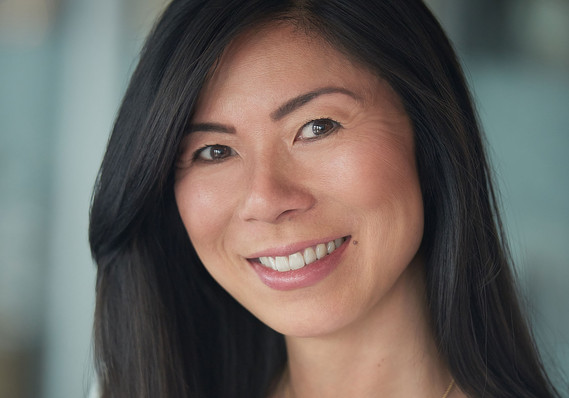 Courtesy of Kristi Kelly
Courtesy of Kristi Kelly
“There’s no such thing as getting that right on the first try, and everybody knew that this was always going to be an iterative process,” Kelly said. “This is a complicated issue that requires that we recognize generations of historical impact.”
Advocates say cannabis companies have a duty to address social justice
Legal cannabis programs aren’t the only ones with an obligation to right past wrongs, advocates suggest. Cannabis businesses, too, should be working to address deficits in communities impacted by the war on drugs, Penny said, whether it’s with respect to access to health care, nutritious food, re-entry programs, hiring and job training, or investment in education in those communities.
Some businesses seek to do just that. Wallace and Mack, for example, donated a portion of proceeds from Think BIG’s debut pre-rolled cannabis product to the California nonprofit Prison Arts Project, and say they’re in conversation with several national and local organizations that support their goals.
And business partners Kobie Evans and Kevin Hart (not the comedian), beneficiaries of the Massachusetts cannabis commission’s economic-empowerment program, will reportedly soon launch the first recreational cannabis shop in Boston. The duo’s hires will include people from their community with criminal records, they told the Dorchester Reporter.
“There’s no doubt about the impact of the war on drugs,” Penny said. “If you as a company aren’t recognizing how we got here and doing something to right those wrongs, you won’t be around very long.”
How to get involved in the industry if you feel like you’ve been left out
Network. That might mean volunteering with cannabis advocates, Moore said. “Get to know the people who love this plant — it’s invaluable,” she said. “It’s a very small community, even though it doesn’t seem that small.”
Speak up about capital in your community. “I would encourage minority business owners to push local discussion about how to resource providing the capital that’s required,” Hawkins said. “Hopefully those pots will emerge, and they should certainly be pushed for by members of the minority business community.”
Read up. “Because of the high regulatory requirements of participation, it’s not enough to be passionate about the issue,” Kelly said. “You still have to do your homework and plan.”
Find a mentor. “A good mentor will save you a lot of money in accidental missteps,” Kelly said.
Know your own comfort level with marijuana’s federal status. “You have to recognize as of today [that] its federal status presents significant barriers,” Kelly said. “If you’re not comfortable with its federal status, you probably shouldn’t cultivate, process or dispense medical cannabis.”
But there are plenty of opportunities in the ancillary, non-plant-touching space, she said. You could provide nursing or counseling services for patients; technology solutions; marketing, legal or accounting help; or research and development, she said. You could seek out a cannabis hospitality license, she added, or take part in an advocacy organization.
“There’s a thousand other ways that you can be in the space,” Kelly said.
Think of what you currently do and how your skills could translate to the cannabis industry, Morón said. You don’t have to jump straight into cultivating or owning a dispensary, she said, which can be financially onerous. “If you’re able to apply your current skill set, and you believe it could support some of our existing businesses, then I believe that that’s an initial start,” she said.
The ETFMG Alternative Harvest ETF MJ, -0.56% has gained 11.4% in 2019, while the Horizons Marijuana Life Sciences ETF HMMJ, -1.34% has gained 15%. Market leader Canopy Growth Corp. CGC, +0.12% WEED, -0.14% is up 22% and Aurora Cannabis Inc. ACB, -1.51% ACB, -2.49% has gained 26%, while the S&P 500 SPX, -0.66% has gained 16% and the Dow Jones Industrial Average DJIA, -0.34% has gained 13%.



